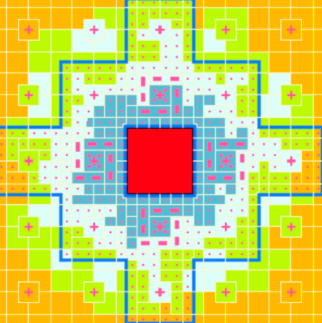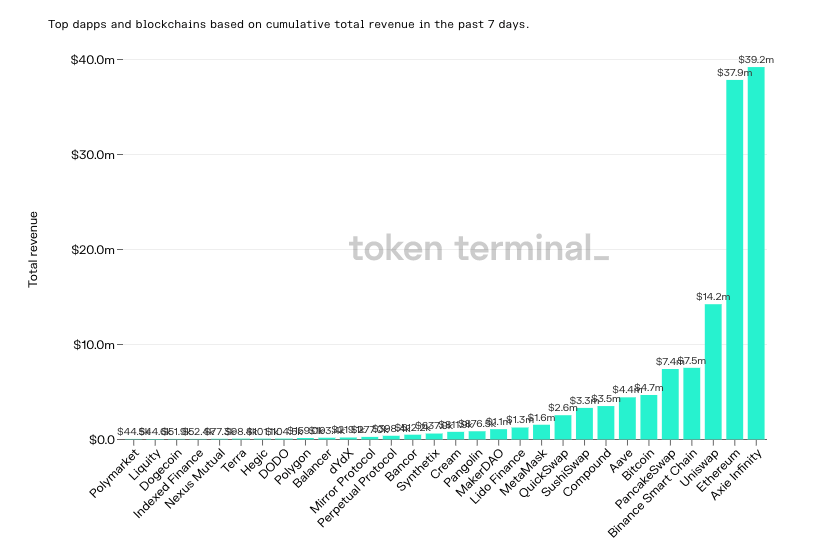Nice flip! Aussie NFT game creator sells Axie Infinity virtual land for 9,200% gain

Pic: metamorworks / iStock / Getty Images Plus via Getty Images
The Sydney-based co-founder of developing NFT auto-battler game Illuvium, Kieran Warwick, has made some crazy profit flip-selling a virtual land plot that exists in the buzzy metaverse of Axie Infinity.
Warwick revealed in a recent Twitter post that he bought the pixelated real estate for $300, selling it last week for $28,000 – a scarcely believable gain of 9,200% in the space of just 12 months.
Warwick is the brother of Kain – founder of Aussie defi success story Synthetix. If Illuvium takes off like Axie Infinity has been lately, perhaps we’ll be referring to Kain as the brother of Kieran before too long. (That’s an if. Not financial advice.)
The Illuvium co-founder revealed his land-flipping success resulted from a total punt when he bought it in mid-2020, as reported by CoinTelegraph.
“Basically it was speculation,” he said. “I just thought that play-to-earn, which is this new paradigm of gaming taking off now, is going to bring so many players to this game [Axie Infinity]. No matter what, if I buy a rare plot of land, it’s going to be worth some money,” he said.
I just sold a plot of land for 28K that I bought for $300.
You think this isn't going to be a revolution?
What happens when your kid asks for your CC to play a game and comes back with bundles of cash?
— Kieran.eth (@KieranWarwick) July 12, 2021
Warwick, who plans to own land in various other blockchain-built worlds he believes will have long-term potential, compared the digital land market to investing in physical real estate.
“It’s the exact same principle in the metaverse,” he told CoinTelegraph. “If you feel like there’s going to be popularity and there’s going to be other people building next to you … then it’s a no-brainer to buy these land plots. In almost every single case, they’re very rare.”

Axie… to infinity and beyond?
As Stockhead reported last week, cutesy NFT monster battler Axie Infinity has been on a tear, leading the charge in the NFT/gaming sector that’s been bucking an overall bearish crypto trend. Illuvium has also been having a good month, up 105% in the past 30 days at the time of writing.
Axie Infinity, which generated more protocol revenue than Bitcoin and Ethereum in the past week (see Token Terminal graph, below), has especially been taking off in the Philippines, with some people giving up their regular day jobs to focus on the play-to-earn game full-time.

And it looks like it’s gaining attention in other parts of South East Asia, too. According to one Malaysian Twitter poster – Dr Ian Bong – you can earn more than 50% of Malaysians by playing Axie Infinity for about 8-12 hours a day. That might sound like a hit of hopium from Bong, but he also has a chart…
50% of Malaysians earn less than RM2,062 per month.
At current prices, an average Axie Infinity player grinding for 8-12 hours daily, earning 4500 SLP monthly can earn RM6611.
Not advocating for everyone to do this, but.. makes you think, doesn't it. pic.twitter.com/3rumsPmgZ4
— Miao (@fiholicMD) July 15, 2021
Most expensive virtual land sale ever
Kieran Warwick’s $28K land-flipping success is impressive, but it pales in comparison with the “sick gainz” made a few months ago by another digital real estate mogul, known as Flying Falcon.
This pseudonymous bird of prey managed to nab 9 rare plots of Axie Infinity land, selling them all for a total of 888 ETH, which was about US$1.5 million at the time, and $US1.69 million at today’s valuation.
Called the “epic 9 plot Genesis estate”, the digi-land is the most expensive NFT real estate sale ever. Not bad, although a lot less than the most expensive NFT art sale of all time, which netted US digital artist Beeple $US69 million in March.
😱 Is this real life?!
🎊 Congrats to @Its_Falcon_Time and @seedphrase for making NFT History!
9 Genesis plots. 888.25 ETH!
$1,500,000
The. Largest. NFT. Sale. Ever
Why? 👇🧵 pic.twitter.com/WcIbg6X1Z3
— Axie Infinity (@AxieInfinity) February 8, 2021
Historic moment?
“We’re witnessing a historic moment,” said Flying Falcon in a tweet.
“[It’s] the rise of digital nations with their own systems of clearly delineated, irrevocable property rights. Axie land has entertainment value, social value, and economic value in the form of future resource flows.”
Some of those resource flows Falcon is referring to will be advertising based. Nascent blockchain metaverses such as Axie Infinity, Decentraland, Somnium Space, Crypto Voxels, The Sandbox and Illuvium are certainly ripe for marketing opportunities now, or in the future.
Warwick is looking further than advertising as a capital-creating use for Illuvium participants, however. For instance, Illuvium’s virtual landowners will be able to mine for an in-game mineral, which will be used to mint items within the game to then be used or sold on the open market.
“You can only mine it if you have land, so immediately there’s a use case,” Warwick told CoinTelegraph.
Despite its co-founder’s profitable land-flipping experience, it seems the Illuvium project is focused on building on solid foundations beyond a playground for speculators.
UNLOCK INSIGHTS
Discover the untold stories of emerging ASX stocks.
Daily news and expert analysis, it's free to subscribe.
By proceeding, you confirm you understand that we handle personal information in accordance with our Privacy Policy.








